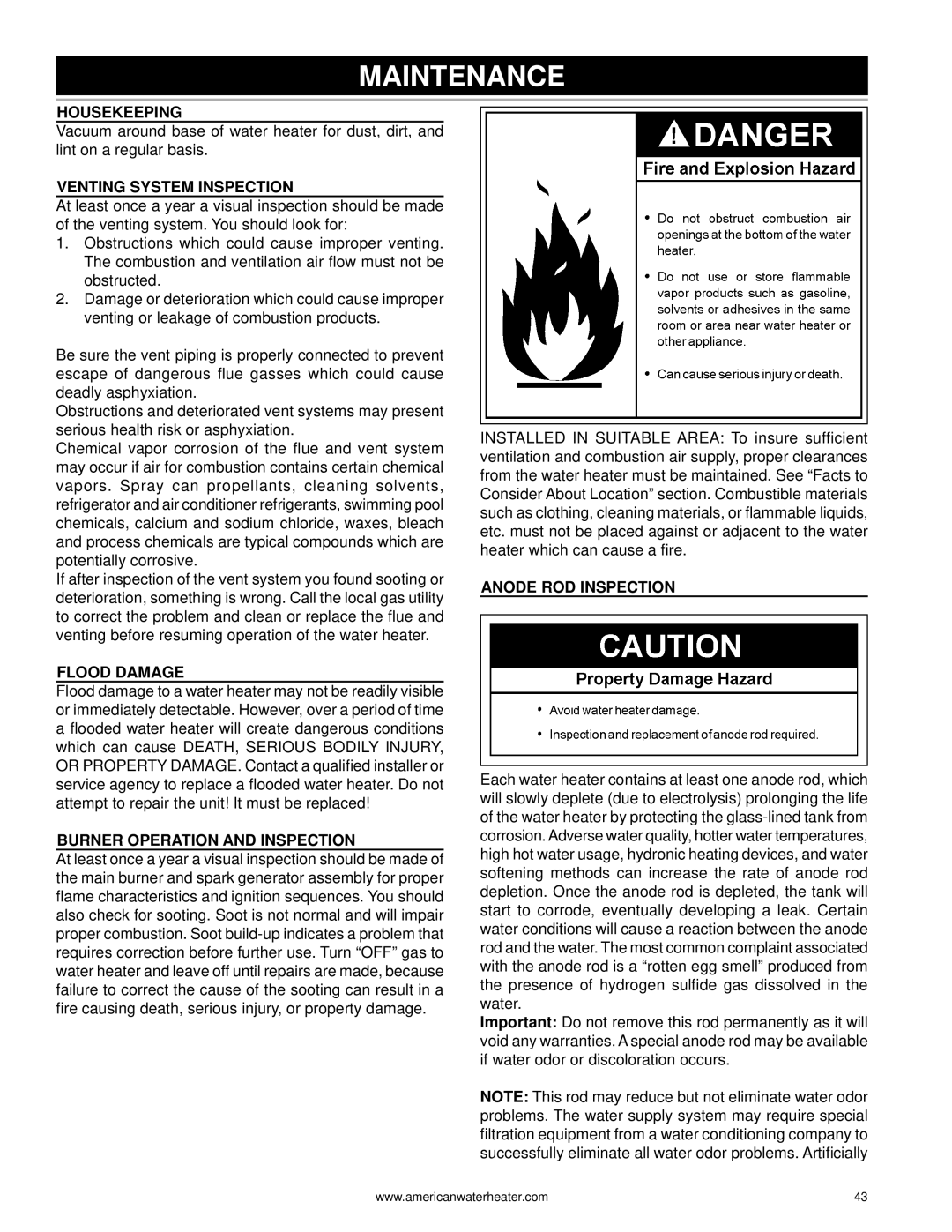
MAINTENANCE
HOUSEKEEPING
Vacuum around base of water heater for dust, dirt, and lint on a regular basis.
VENTING SYSTEM INSPECTION
At least once a year a visual inspection should be made of the venting system. You should look for:
1.Obstructions which could cause improper venting. The combustion and ventilation air flow must not be obstructed.
2.Damage or deterioration which could cause improper venting or leakage of combustion products.
Be sure the vent piping is properly connected to prevent escape of dangerous flue gasses which could cause deadly asphyxiation.
Obstructions and deteriorated vent systems may present serious health risk or asphyxiation.
Chemical vapor corrosion of the flue and vent system may occur if air for combustion contains certain chemical vapors. Spray can propellants, cleaning solvents, refrigerator and air conditioner refrigerants, swimming pool chemicals, calcium and sodium chloride, waxes, bleach and process chemicals are typical compounds which are potentially corrosive.
If after inspection of the vent system you found sooting or deterioration, something is wrong. Call the local gas utility to correct the problem and clean or replace the flue and venting before resuming operation of the water heater.
FLOOD DAMAGE
Flood damage to a water heater may not be readily visible or immediately detectable. However, over a period of time a flooded water heater will create dangerous conditions which can cause DEATH, SERIOUS BODILY INJURY, OR PROPERTY DAMAGE. Contact a qualified installer or service agency to replace a flooded water heater. Do not attempt to repair the unit! It must be replaced!
BURNER OPERATION AND INSPECTION
At least once a year a visual inspection should be made of the main burner and spark generator assembly for proper flame characteristics and ignition sequences. You should also check for sooting. Soot is not normal and will impair proper combustion. Soot
INSTALLED IN SUITABLE AREA: To insure sufficient ventilation and combustion air supply, proper clearances from the water heater must be maintained. See “Facts to Consider About Location” section. Combustible materials such as clothing, cleaning materials, or flammable liquids, etc. must not be placed against or adjacent to the water heater which can cause a fire.
ANODE ROD INSPECTION
Each water heater contains at least one anode rod, which will slowly deplete (due to electrolysis) prolonging the life of the water heater by protecting the
Important: Do not remove this rod permanently as it will void any warranties. A special anode rod may be available if water odor or discoloration occurs.
NOTE: This rod may reduce but not eliminate water odor problems. The water supply system may require special filtration equipment from a water conditioning company to successfully eliminate all water odor problems. Artificially
www.americanwaterheater.com | 43 |
